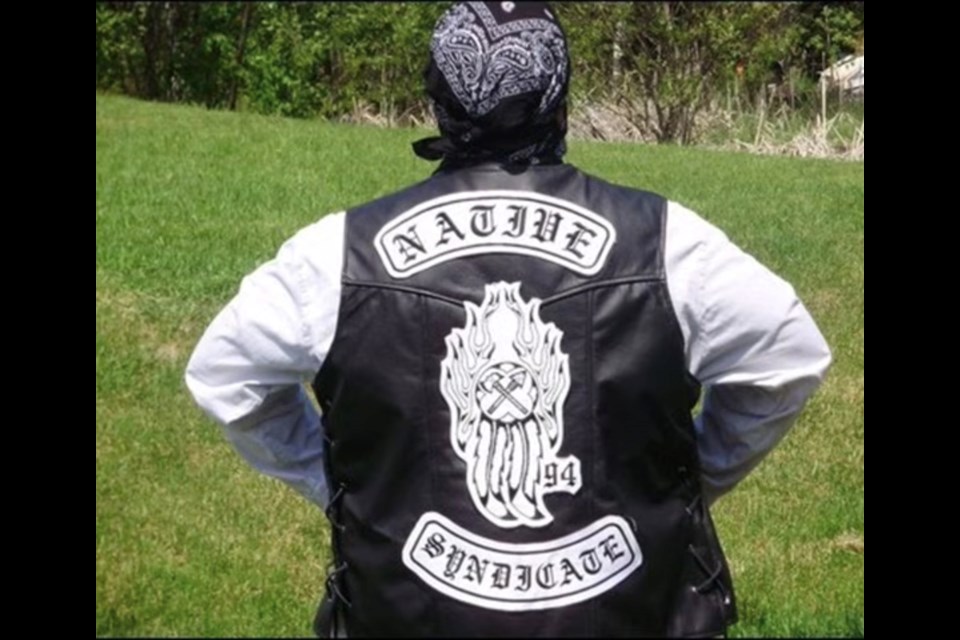Warning: Some may find details disturbing
Saskatchewan’s highest court shot down the appeal of Native Syndicate gang members convicted for the beating death of 54-year-old Shawn Roderick Douglas.
Johnathon Peepeetch, Joshua Wilson and Dennis Thompson each received a mandatory life sentence on first-degree murder charges for the Aug. 7, 2014 murder of Douglas.
Their appeal for a new trial was based on the grounds of the inclusion of gang evidence. Their lawyers also argued that the trial judge didn’t provide adequate cautions to the jury about gang-related evidence because of its prejudicial nature. They said the jury also needed better instructions because the three convicted killers were Indigenous and the victim was Caucasian.
Their appeal was heard in the Saskatchewan Court of Appeal March 2021 and the court reserved its decision until June 9.
Lawyers for the three convicted men argued that the gang evidence by its nature was bad character evidence and left jurors with a perception of a “violent and dysfunctional world” that tainted their view of the three accused.
Justice Jerome Tholl, in concurrence with Justice Ralph Ottenbreit and Madam Justice Lian Schwann disagreed.
Justice Tholl said the defence lawyers themselves had introduced street gang evidence into the trial.
“This case is a story of gangs,” Thompson’s lawyer had argued during the 20-day trial at Regina Court of Queen’s Bench in 2017.
“It’s a story of gang violence. It’s about how gangs operate here in Regina. It’s a chilling case. This is about where people who are not in the gang can find themselves when they cross paths with a gang. This is also a case about how gangs operate when they get caught. We ask you to find that Shawn Douglas died as a result of Native Syndicate gang violence.
“The Native Syndicate gang does not operate by the rules of society. It has its own rules of authority and obedience, its own system of justice and consequence.”
The murder of Shawn Douglas
Shawn Douglas was robbed, bound, held hostage at a house, and forced into the trunk of a stolen Honda before being taken to a rural area outside of Regina where he was murdered.
The court heard that in a treed area Peepeetch gave Douglas a cigarette and told him to start praying and said that he was going to die.
Peepeetch swung a sledgehammer hitting Douglas on the head. Douglas fell to the ground. Wilson stabbed Douglas in the chest with a knife and Thompson struck Douglas with a pry bar.
D.S.*, A.A., and T.R. also struck Douglas with a tool as he lay on the ground.
The accused men drove back to the Regina house but when they arrived the police were there so they fled to Saskatoon in a stolen Honda and Douglas’s SUV. Saskatoon Police attempted to stop the SUV and after a high speed chase the SUV crashed.
How Douglas met up with gang members
The court heard that Douglas went to the Triple 8 Pizza in Regina late in the evening of Aug. 6, 2014. By chance he met a woman (B.F.) he knew who was with her cousin S.R. The three sat and had drinks.
S.R.’s brother, V.M., waited in a car. Around this time, Wilson, Thompson, A.A., and T.R. were rummaging through vehicles in a Regina neighbourhood when A.A. came across a Honda with keys inside. They stole the car and picked up three people. Wilson took over driving. They made one stop and then drove to Triple 8 Pizza. At about 2 a.m. on Aug. 7, 2014, Thompson went inside the restaurant and bought a bottle of alcohol. This is when he hooked up with Douglas.
From the restaurant, Douglas went with everyone to a party at a house on Toronto Street. Douglas bought some alcohol and food before going to the house, where throughout the night there were at least 14 people present.
B.F. wanted cocaine so around 3:20 a.m. Douglas went to an ATM with her and Wilson. Douglas withdrew money and gave it to B.F. to buy cocaine.
Shortly after, Douglas was beaten, robbed of his debit card and held hostage at the house. Wilson held a knife to Douglas’s throat to force him to provide the PIN for his debit card. Wilson and B.F. withdrew $400 from his bank account around 4 a.m. and bought items at 7-Eleven around 5 a.m.
Douglas attempted to escape and fled the house but Wilson pursued him and brought him back inside at knifepoint.
Peepeetch took charge and was upset that Douglas was still conscious and beat him by punching and kicking him in the face.
S.R. testified that she heard the three appellants say, “We got to get rid of this guy.”
Thompson, Peepeetch and Wilson could be seen talking among themselves in the backyard.
V.M. feared for his own safety and fled the house and broke into a home several blocks away and asked the occupants to call the police.
D.S. heard a woman yell she was calling the police so he went back inside the house and told everyone the police were coming.
At this point Douglas had a pillowcase over his head and was led out the back door to the alley and into his SUV. Wilson drove his SUV.
D.S., A.A. and T.R. got into the stolen Honda with Douglas. T.R. drove and Peepeetch, Thompson, S.R., B.F. and M.M. were passengers.
The two vehicles drove through Regina with the SUV in the lead. The vehicles pulled over on Quebec Street because Peepeetch wanted Douglas to be put into the trunk of the Honda. Douglas tried to escape but was caught by A.A. Peepeetch then beat Douglas into a state of unconsciousness and he was put into the trunk of the Honda. Peepeetch punched M.M. in the face for refusing to get into the trunk with Douglas when they had difficulty getting the trunk to stay closed.
The two vehicles drove outside of the city limits to a treed area.
The three appellants threatened the other occupants of the SUV warning them not to snitch.
At the treed area Peepeetch took Douglas out of the trunk and used zip ties to bind him and led him into the bush.

The gang evidence
Justice Tholl said all of the gang evidence called at trial was led through the Crown witnesses and a substantial portion of the evidence was elicited through cross-examination of those witnesses by defence counsel.
In fact, some of the witnesses used gang involvement to explain why they did what they did, said Justice Tholl.
A.A. testified that Wilson was also a striker, which, he said, is the first rung in the gang hierarchy. Wilson was A.A.’s recruiter; he was A.A.’s higher-up and had authority over him. A.A. testified he had to follow the instructions of his higher-ups. D.S., in cross-examination, testified that he was a striker and that he had to follow orders from the person who brought him into the gang or there would be consequences.
Thompson’s counsel led A.A. into providing testimony about the Native Syndicate rule that you have to kill a robbery victim once they see your face.
Justice Tholl said defence cross-examination resulted in much more detailed testimony about the nature of the Native Syndicate in general and the participants’ specific gang involvement than was introduced by the Crown.
Thompson and Wilson’s lawyers argued that the gang evidence was evidence of bad character, which could lead to propensity reasoning by the jury, and should have been excluded.
The Crown can enter evidence that tends to show the accused’s character in a bad light when it’s relevant. Gang-related evidence - although evidence of bad character - can be an essential part of the narrative, said Justice Tholl.
The court had ruled that the gang evidence was admitted because “separating the gang activity from the event will risk providing the jury with an ‘artificially crafted, antiseptic version of the case.’” It provided an essential narrative to the circumstances of the offence and assisted the jury in understanding why some of the participants behaved in the manner that they did.
Justice Tholl said the gang evidence formed the backbone of Thompson’s defence, and a significant portion of Peepeetch’s defence. Thompson had argued he was not a member of the gang and that he was being implicated by the false testimony of those who were.
Peepeetch had submitted to the jury that he was no longer a member of the Native Syndicate and the gang wanted him to take the blame for the murder.
Wilson had relied on gang evidence to argue that he was a low-level member of the Native Syndicate and was merely an observer of the murder that was committed by a higher-ranking member.
*Initials are used for several people due to a court ordered ban on publication of witnesses names.



